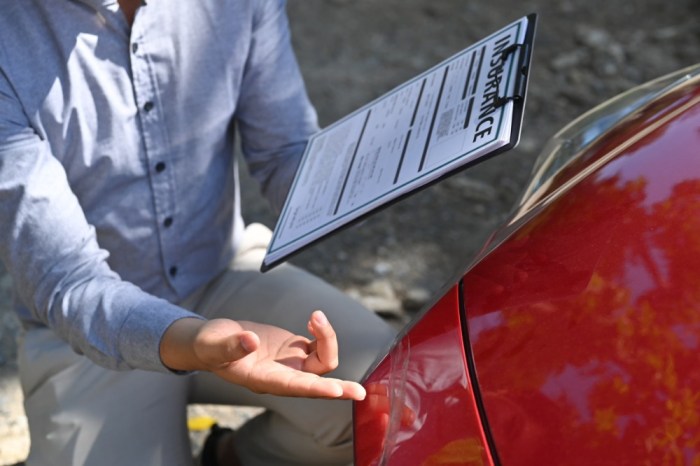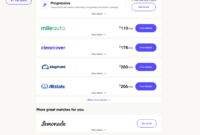Florida car insurance is a complex and ever-changing landscape, with unique regulations and coverage options that can be difficult to navigate. This guide will provide you with a comprehensive overview of Florida car insurance, including the types of coverage available, factors affecting premiums, and tips for finding the best coverage at the most affordable price.
Florida Car Insurance Overview
Florida car insurance regulations are unique in several ways. The state has mandatory coverage requirements, including personal injury protection (PIP) and property damage liability (PDL), that differ from other states. Additionally,
Florida operates under a no-fault system, which means that drivers are generally responsible for their own medical expenses, regardless of who is at fault in an accident.
Mandatory Coverage Requirements

- Personal Injury Protection (PIP): $10,000 per person
- Property Damage Liability (PDL): $10,000 per accident
- Bodily Injury Liability (BIL): $10,000 per person, $20,000 per accident (optional)
Penalties for Driving Without Insurance
Driving without insurance in Florida is a serious offense that can result in fines, license suspension, and even jail time. First-time offenders may face a fine of up to $500 and a license suspension of up to three years.
Subsequent offenses can result in higher fines and longer suspensions.
Factors Affecting Insurance Premiums
Several factors influence car insurance premiums in Florida, including:
Driving History
Drivers with a clean driving record will typically pay lower premiums than those with traffic violations or accidents on their record.
Vehicle Type
The type of vehicle you drive can also affect your premium. Sports cars and luxury vehicles are typically more expensive to insure than sedans or economy cars.
Age
Younger drivers are statistically more likely to be involved in accidents, so they typically pay higher premiums than older drivers.
Location
The location where you live can also impact your premium. Drivers in urban areas with high crime rates or traffic congestion may pay higher premiums than those in rural areas.
Types of Coverage Available
There are several types of car insurance coverage available in Florida, including:
Liability Coverage
Liability coverage protects you if you are found liable for damages or injuries in an accident. This coverage includes bodily injury liability (BIL) and property damage liability (PDL).
Collision Coverage, Florida car insurance
Collision coverage pays for damage to your vehicle if you are involved in an accident, regardless of who is at fault.
Comprehensive Coverage
Comprehensive coverage pays for damage to your vehicle caused by non-collision events, such as theft, vandalism, or natural disasters.
Uninsured/Underinsured Motorist Coverage
Uninsured/underinsured motorist coverage protects you if you are injured by a driver who does not have insurance or who does not have enough insurance to cover your damages.
Florida car insurance premiums can vary widely depending on factors like your driving record and location. To find the best rates, it’s essential to compare quotes from multiple insurers. While you’re at it, consider bundling your car and house insurance to save even more money.
For comprehensive car and house insurance quotes , reach out to a reputable insurance provider in Florida today.
Shopping for Car Insurance
When shopping for car insurance in Florida, it is important to compare quotes from multiple insurers. You can do this online or through an insurance agent or broker.
Tips for Comparing Quotes
- Make sure you are comparing the same coverage levels.
- Get quotes from at least three different insurers.
- Consider your deductible and coverage limits.
- Ask about discounts.
Filing Claims and Disputes
If you are involved in an accident, it is important to file a claim with your insurance company as soon as possible. You can do this online, over the phone, or in person.
Timelines and Documentation Requirements
You must file a claim within 14 days of the accident. You will need to provide your insurance company with the following documentation:
- A copy of the police report
- A list of damages
- Photos of the damage
- A statement from your doctor (if you were injured)
Common Disputes
Common disputes that arise in the claims process include:
- The amount of the settlement offer
- The coverage that is available
- The time it takes to process the claim
Special Considerations
There are a few unique considerations related to car insurance in Florida:
Seasonal Factors
Florida is prone to hurricanes and other natural disasters. This can impact your insurance rates and coverage.
Hurricane Coverage

Hurricane coverage is an optional coverage that can protect your vehicle from damage caused by hurricanes and other windstorms.
No-Fault System
Florida operates under a no-fault system, which means that drivers are generally responsible for their own medical expenses, regardless of who is at fault in an accident.
End of Discussion
Understanding Florida car insurance is essential for protecting yourself and your finances in the event of an accident. By following the tips and advice in this guide, you can make informed decisions about your coverage and ensure that you have the protection you need.
FAQ Corner: Florida Car Insurance
What are the minimum car insurance requirements in Florida?
Florida requires all drivers to carry a minimum of $10,000 in personal injury protection (PIP) and $10,000 in property damage liability (PDL) coverage.
What factors affect car insurance premiums in Florida?
Florida car insurance costs vary significantly depending on factors like age, driving history, and location. However, it’s essential to remember that insurance needs can differ from state to state.
If you’re considering relocating to Texas, researching car insurance in Texas is crucial to ensure you have adequate coverage at an affordable rate.
While Florida car insurance rates may differ from Texas, understanding the insurance landscape in your new state can help you make informed decisions about your insurance needs.
Car insurance premiums in Florida are based on a number of factors, including driving history, vehicle type, age, and location.
Florida car insurance premiums can vary significantly depending on factors such as your driving history and location. To ensure you’re getting the best coverage at the right price, it’s essential to compare quotes from multiple insurance providers.
Auto car insurance policies typically cover a wide range of scenarios, including accidents, theft, and vandalism.
By understanding your coverage options and comparing quotes, you can make an informed decision that meets your specific needs and protects your financial well-being in case of an unexpected event.
What types of car insurance coverage are available in Florida?
Florida offers a variety of car insurance coverage options, including liability, collision, comprehensive, and uninsured/underinsured motorist coverage.
How can I find the best car insurance rates in Florida?
To find the best car insurance rates in Florida, it is important to compare quotes from multiple insurance companies. You can do this online or through an insurance agent.




